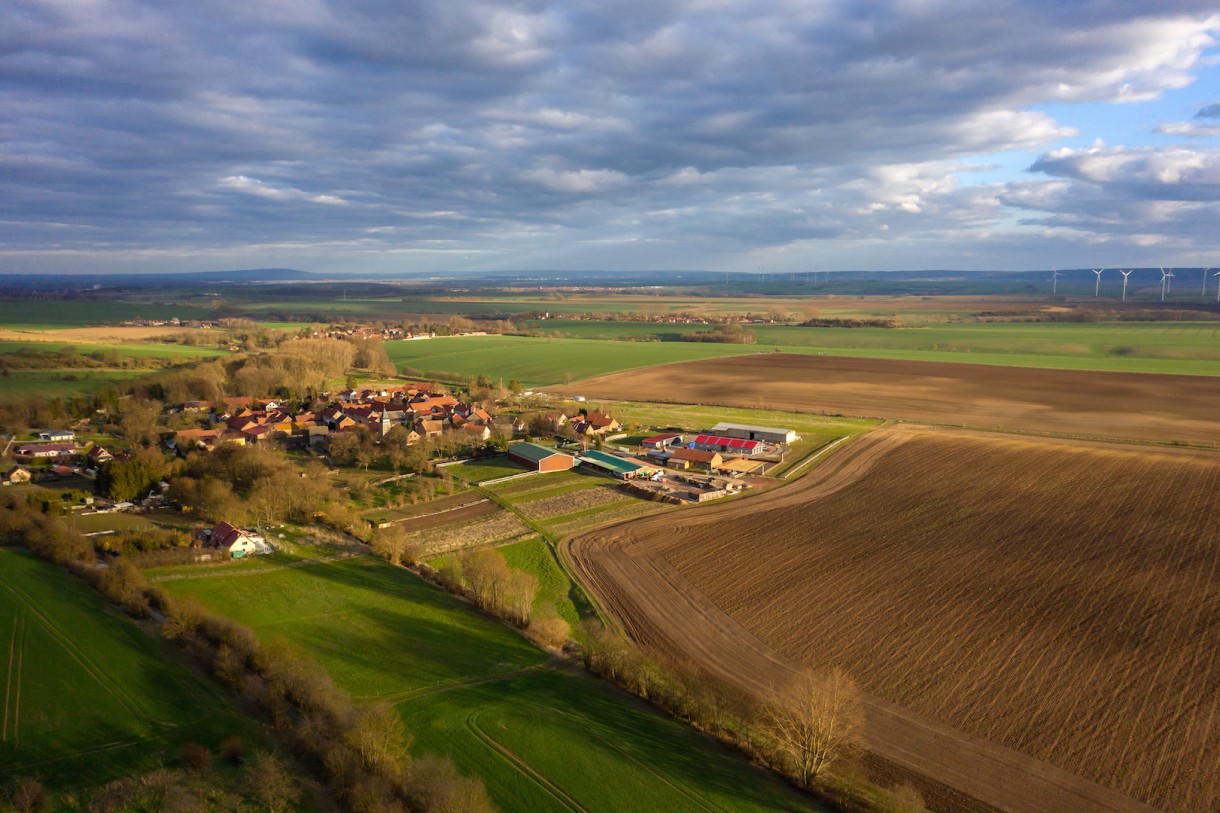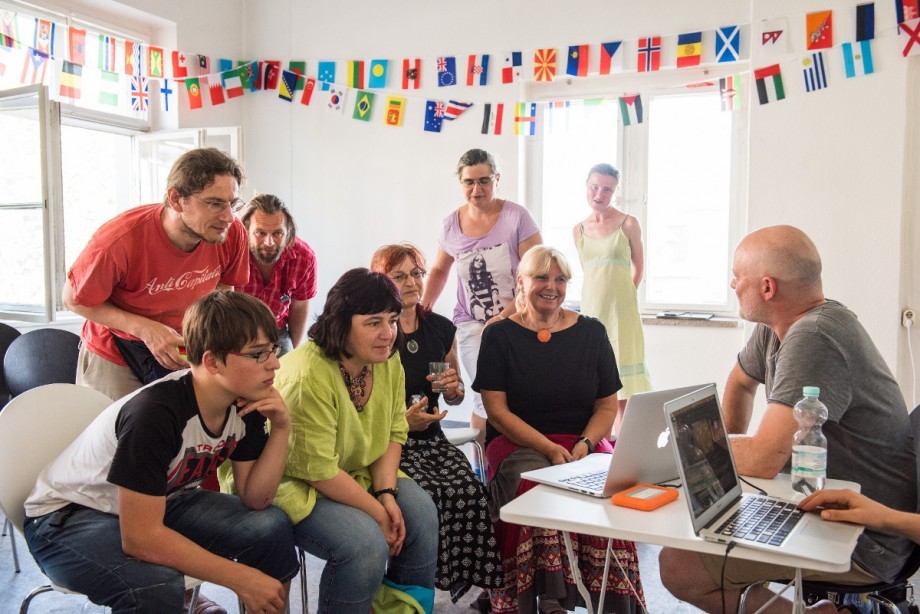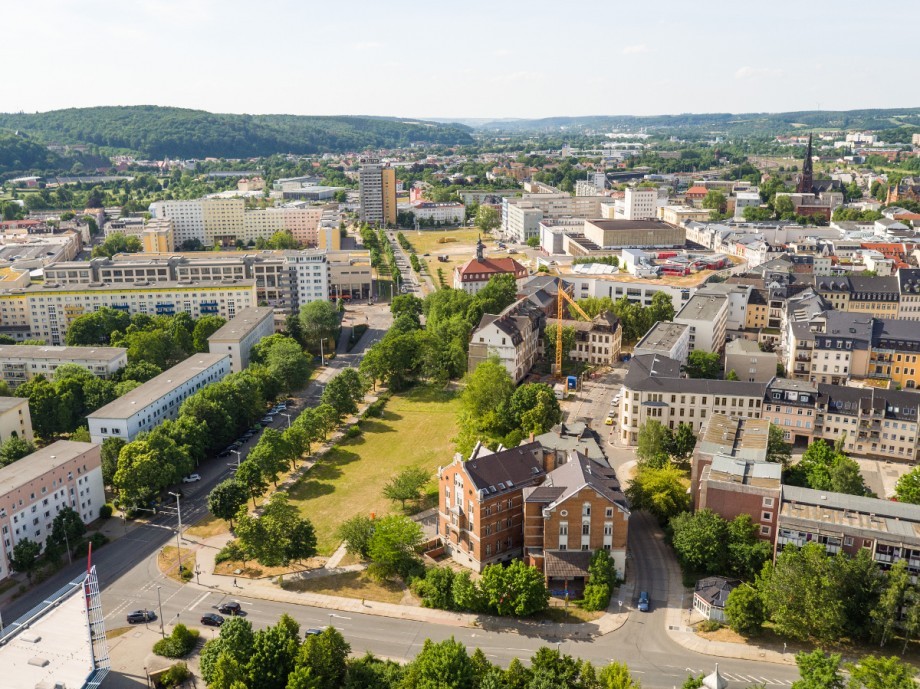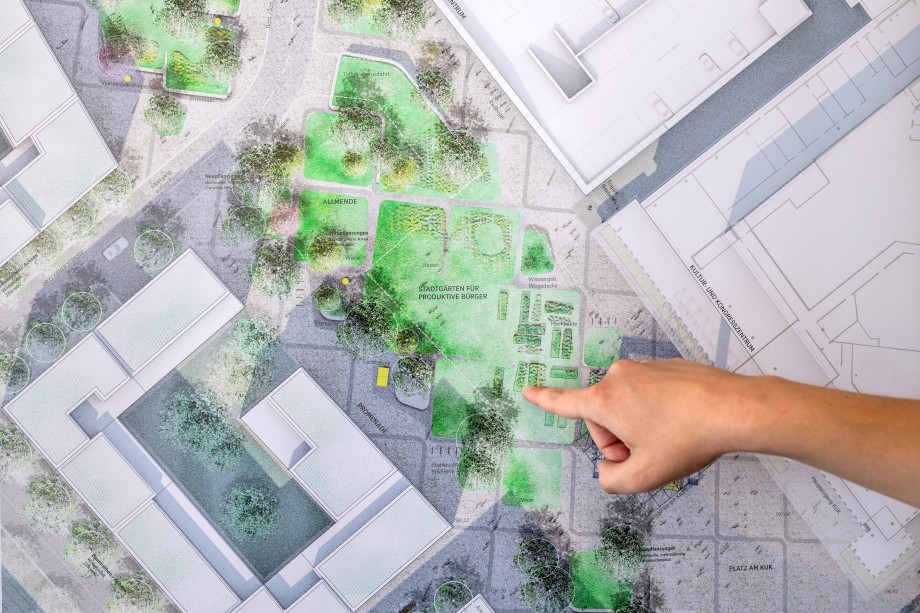Region Seltenrain
Outpatient clinic and health kiosks: Cooperative health care in the country
Since 2011, the Landleben Foundation has been building a network of health, nursing and medical support in six municipalities in northern Thuringia. In 2017, the foundation’s pilot project ‘Landengel’ started as a healthcare networking platform: the ‘Landengel’ helpers drive senior citizens to medical appointments, organise trips or run games afternoons. Less stress and more time thanks to short distances is the project’s credo.
Just how short such distances should be, or how far apart they can be, is being trialled using bus stops converted into health kiosks. The idea is that doctors, nursing and health care providers, along with pharmacies and other service pro- viders work together with the Landengel under one roof. The Berlin architecture o ce Pasel-K Architects was commissioned in 2019 to develop a design manual for the health kiosks. Alongside a sheltered waiting area and public toilets, the kiosks should have a multi-purpose space. Each kiosk will be unique and made of wood. Traditional timber-frame structures are one possibility, as are a combination of digital fabrication and analogue construction or the re-use of building materials from demolished structures as a form of recycling or upcycling.

Im Auftrag der IBA Thüringen erarbeitete PASEL-K Architects aus Berlin ein Design-Manual, das die maximal 25 Quadratmeter großen Kioske als architektonische Familie begreift, die trotz unterschiedlicher Standorte ein zusammenhängendes Ganzes bilden. Design Manual von PASEL-K Architects, Berlin.

Die Gesundheitskioske sind als Kleinstarchitekturen mit Bushaltestelle ein räumlich sichtbares Leitsystem für eine deutschlandweit neue Infrastruktur.
Momentan keine Termine
- Gemeinden Sundhausen, Blankenburg, Bruchstedt, Kirchheilingen, Urleben
- Partner:innen des Landengel e.V.
Kerstin Faber
Projektleiterin
Telefon +49 3644 51832-10
kerstin.faber@iba-thueringen.de
- Angeregt durch die Idee des dezentralen Versorgungsnetzwerks in der Region Seltenrain ist im Wintersemester 2021/22 eine Bachelorarbeit an der TU Berlin im Fachgebiet CODE entstanden, welche die Fahrradmobilität in der Region weiterdenkt:
- Bachelorprojekt ›leergut - Bike Box für den Unstrut-Hainich-Kreis‹ von Annalena Kindt und Paula Johanna Tappe
























